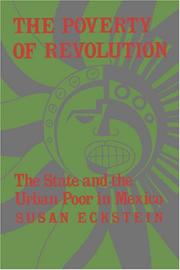| Listing 1 - 10 of 26 | << page >> |
Sort by
|
Book
ISBN: 9789087640637 Year: 2010 Publisher: Gent Story publishers
Abstract | Keywords | Export | Availability | Bookmark
 Loading...
Loading...Choose an application
- Reference Manager
- EndNote
- RefWorks (Direct export to RefWorks)
Leases --- Baux --- Occupancy (Law) --- Occupation (Droit civil)
Book
ISBN: 9782707183675 Year: 2014 Publisher: Paris : La découverte,
Abstract | Keywords | Export | Availability | Bookmark
 Loading...
Loading...Choose an application
- Reference Manager
- EndNote
- RefWorks (Direct export to RefWorks)
Occupancy (Law) --- Occupation (Droit civil) --- Terrains --- Eviction --- Expulsion (Droit) --- Droit
Book
ISBN: 9780226399805 022639980X 9780226399942 022639994X Year: 2016 Publisher: Chicago The University of Chicago Press
Abstract | Keywords | Export | Availability | Bookmark
 Loading...
Loading...Choose an application
- Reference Manager
- EndNote
- RefWorks (Direct export to RefWorks)
Squatter settlements --- Squatters --- Occupancy (Law) --- Occupancy (Law) --- Occupancy (Law) --- Home ownership --- Squatters --- History --- History --- Social aspects --- Social aspects --- Attitudes --- Manhattan (New York, N.Y.) --- Manhattan (New York, N.Y.) --- History --- History
Book
ISBN: 1108487742 1108767877 1108862918 1108857841 Year: 2022 Publisher: Cambridge, United Kingdom ; New York, NY : Cambridge University Press,
Abstract | Keywords | Export | Availability | Bookmark
 Loading...
Loading...Choose an application
- Reference Manager
- EndNote
- RefWorks (Direct export to RefWorks)
Squatting and the State offers a new theoretical and methodological approach for analyzing state response to squatting, homelessness, empty land, and housing. Embedded in local, national, and transnational contexts, and reaching beyond conventional property theories, this important work sets out a fresh analytical paradigm for understanding the deep, interlocking problems facing not just the traditional 'victims' of narratives about homelessness and squatting but also a variety of other participants in these conflicts. Against the backdrop of economic, social, and political crises, Squatting and the State offers readers important insights about the changing natures of property, investment, housing, communities, and the multi-level state, and describes the implications of these changes for how we think and talk about property in law.
Squatters --- Legal status, laws, etc. --- Occupancy (Law) --- Public lands --- Squatter settlements
Book
Year: 1896 Publisher: Paris : V. Giard & E. Brière,
Abstract | Keywords | Export | Availability | Bookmark
 Loading...
Loading...Choose an application
- Reference Manager
- EndNote
- RefWorks (Direct export to RefWorks)
Occupancy (Law) --- Territory, National --- Sovereignty --- Colonization --- Occupation (Droit civil) --- Territoire national --- Souveraineté --- Colonisation

ISBN: 1400853915 069160410X 0691022828 9781400853915 Year: 2014 Publisher: Princeton Princeton University Press
Abstract | Keywords | Export | Availability | Bookmark
 Loading...
Loading...Choose an application
- Reference Manager
- EndNote
- RefWorks (Direct export to RefWorks)
The plight of the urban poor in Mexico has changed little since World War II, despite the country's impressive rate of economic growth. Susan Eckstein considers how market forces and state policies that were ostensibly designed to help the poor have served to maintain their poverty. She draws on intensive research in a center city slum, a squatter settlement, and a low-cost housing development.Originally published in 1977.The Princeton Legacy Library uses the latest print-on-demand technology to again make available previously out-of-print books from the distinguished backlist of Princeton University Press. These editions preserve the original texts of these important books while presenting them in durable paperback and hardcover editions. The goal of the Princeton Legacy Library is to vastly increase access to the rich scholarly heritage found in the thousands of books published by Princeton University Press since its founding in 1905.
Urban poor --- Slums --- Squatters --- Housing --- Slum clearance --- Occupancy (Law) --- Public lands --- Squatter settlements --- City dwellers --- Poor --- E-books
Book
ISBN: 022640000X Year: 2016 Publisher: Chicago : University of Chicago Press,
Abstract | Keywords | Export | Availability | Bookmark
 Loading...
Loading...Choose an application
- Reference Manager
- EndNote
- RefWorks (Direct export to RefWorks)
Though New York's Lower East Side today is home to high-end condos and hip restaurants, it was for decades an infamous site of blight, open-air drug dealing, and class conflict-an emblematic example of the tattered state of 1970s and '80s Manhattan. Those decades of strife, however, also gave the Lower East Side something unusual: a radical movement that blended urban homesteading and European-style squatting in a way never before seen in the United States. Ours to Lose tells the oral history of that movement through a close look at a diverse group of Lower East Side squatters who occupied abandoned city-owned buildings in the 1980s, fought to keep them for decades, and eventually began a long, complicated process to turn their illegal occupancy into legal cooperative ownership. Amy Starecheski here not only tells a little-known New York story, she also shows how property shapes our sense of ourselves as social beings and explores the ethics of homeownership and debt in post-recession America.
Squatter settlements --- Squatters --- Occupancy (Law) --- Occupancy (Law) --- Occupancy (Law) --- Home ownership --- Squatters --- History --- History --- Social aspects. --- Social aspects. --- Attitudes. --- Manhattan (New York, N.Y.) --- Manhattan (New York, N.Y.) --- History --- History --- Lower East Side. --- New York City. --- debt. --- gentrification. --- homeownership. --- oral history. --- property. --- social movements. --- squatting. --- urban homesteading.
Book
ISBN: 9783737602143 9783737602150 3737602158 373760214X Year: 2016 Publisher: Kassel Kassel University Press
Abstract | Keywords | Export | Availability | Bookmark
 Loading...
Loading...Choose an application
- Reference Manager
- EndNote
- RefWorks (Direct export to RefWorks)
History as a science --- History of Germany and Austria --- anno 1600-1699 --- anno 1700-1799 --- anno 1800-1899 --- Occupancy (Law) --- Acquisition of property --- Social aspects.
Book
ISBN: 0197629288 0197629261 019762927X Year: 2022 Publisher: New York, NY: Oxford University Press,
Abstract | Keywords | Export | Availability | Bookmark
 Loading...
Loading...Choose an application
- Reference Manager
- EndNote
- RefWorks (Direct export to RefWorks)
This book explains why nearly thirty years after the transition to democracy, the South African government continues to evict squatters from urban land. It argues that housing officials view occupiers as threats to the government's housing delivery program, which, they insist, requires order and state control. New occupations are therefore stigmatized as "disorderly" threats, and government actors represent their removal as a precondition for access to housing. Drawing on a decade of sustained ethnographic fieldwork in two such occupations in Cape Town, this study explains why one was evicted, whereas the other was ultimately tolerated, answering a central question in urban studies: how do governments decide when to evict, and conversely, when to tolerate? These decisions are not made in a vacuum but instead require an analysis that expands what we typically call "the state." This book argues that the state does not simply "see" occupations, as if they were a feature of the natural landscape. Rather, occupiers collectively project themselves to government actors, affecting how they are seen. But residents are not only seen; they also see, which shapes how they organize themselves. When residents see the state as an antagonist, they tend to unify under a single leadership; but when they see it as a potential ally, they often remain atomized as if they were individual customers. The unity in the former case projects an orderly population, less likely to be evicted; but the fragmentation in the latter case projects a disorderly mass, serving to legitimate eviction rulings.
Squatters. --- Land use, Urban. --- Housing policy --- Urban land use --- Cities and towns --- Urban economics --- Urban policy --- Urban renewal --- Occupancy (Law) --- Public lands --- Squatter settlements --- South African --- land occupation

ISBN: 0582480647 9780582480643 Year: 1975 Publisher: London Longman
Abstract | Keywords | Export | Availability | Bookmark
 Loading...
Loading...Choose an application
- Reference Manager
- EndNote
- RefWorks (Direct export to RefWorks)
Housing --- Squatter settlements --- Squatters --- Logement --- Bidonvilles --- Pays en développement --- -Squatter settlements --- -Squatters --- -Occupancy (Law) --- Public lands --- Informal settlements (Squatter settlements) --- Irregular settlements --- Settlements, Spontaneous --- Settlements, Squatter --- Shack towns --- Shanty towns --- Shantytowns --- Spontaneous settlements --- Uncontrolled settlements --- Cities and towns --- Slums --- Affordable housing --- Homes --- Houses --- Housing needs --- Residences --- Slum clearance --- Urban housing --- City planning --- Dwellings --- Human settlements --- Social aspects --- Geografie --- Sociale geografie --- Bewoning en leefgemeenschap. --- -Housing --- Pays en développement --- Occupancy (Law) --- Housing - Developing countries --- Squatter settlements - Developing countries --- Squatters - Developing countries
| Listing 1 - 10 of 26 | << page >> |
Sort by
|

 Search
Search Feedback
Feedback About UniCat
About UniCat  Help
Help News
News